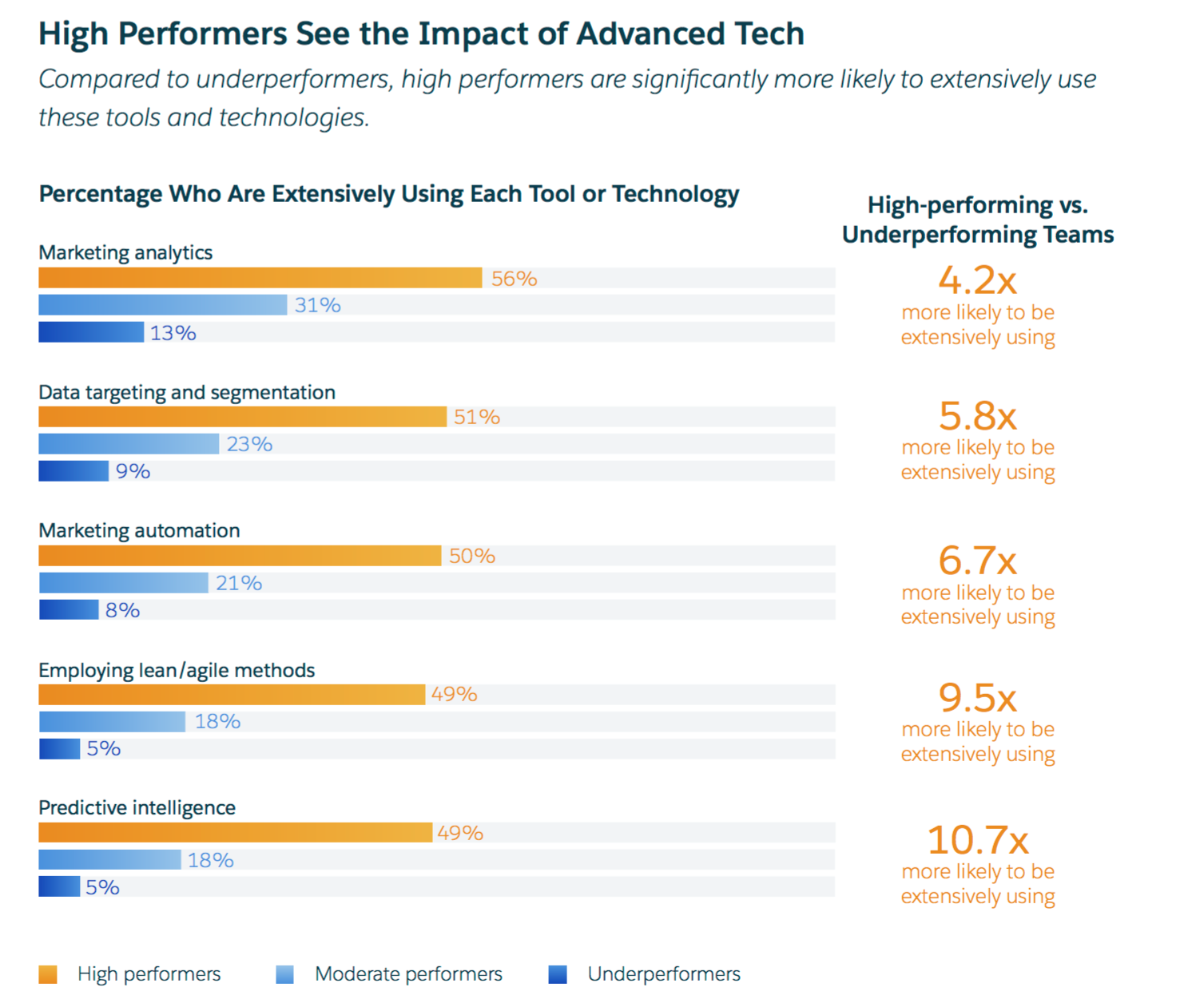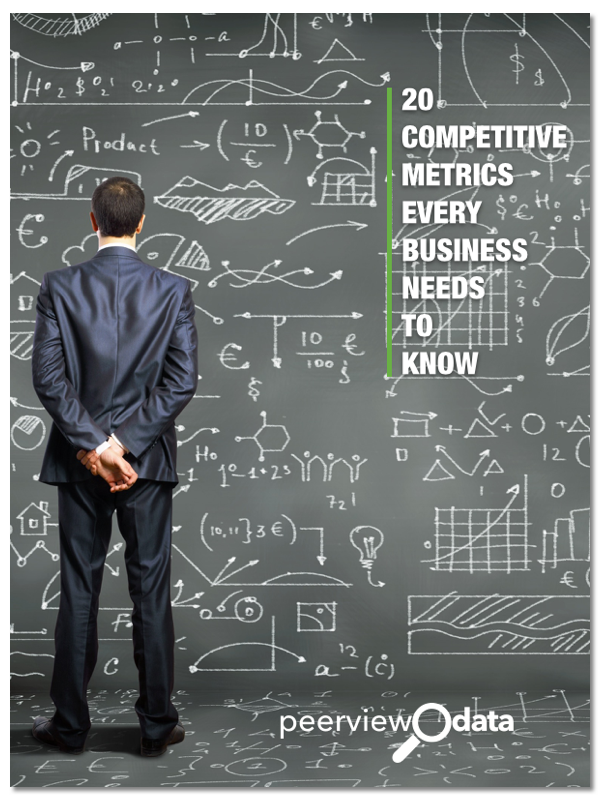What separates good marketers from bad marketers?
According to Salesforce’s 2016 State of Marketing report, "extensively using" these five data-driven tools and technologies are at the heart of their success:
- marketing analytics (aggregating and benchmarking internal and external performance data to help determine your marketing who, what, when, why and how)
- customer targeting and segmentation (using internal and external performance data to determine who gets what, when, why and how)
- marketing automation (using internal and external performance data to program what, when and how)
- agile marketing (test → measure → revise → repeat, with benchmarks differentiating "winners" from "losers")
- predictive intelligence (using internal and external performance data to estimate future actions or outcomes)
How many do you use?
_____________________________
Don't let your data go to waste.
See how our Strategic Analysis & Benchmarking tool can help you tap the information you already collect to become more competitive.
→ Request a 15-minute, no-pressure demo:
_____________________________











